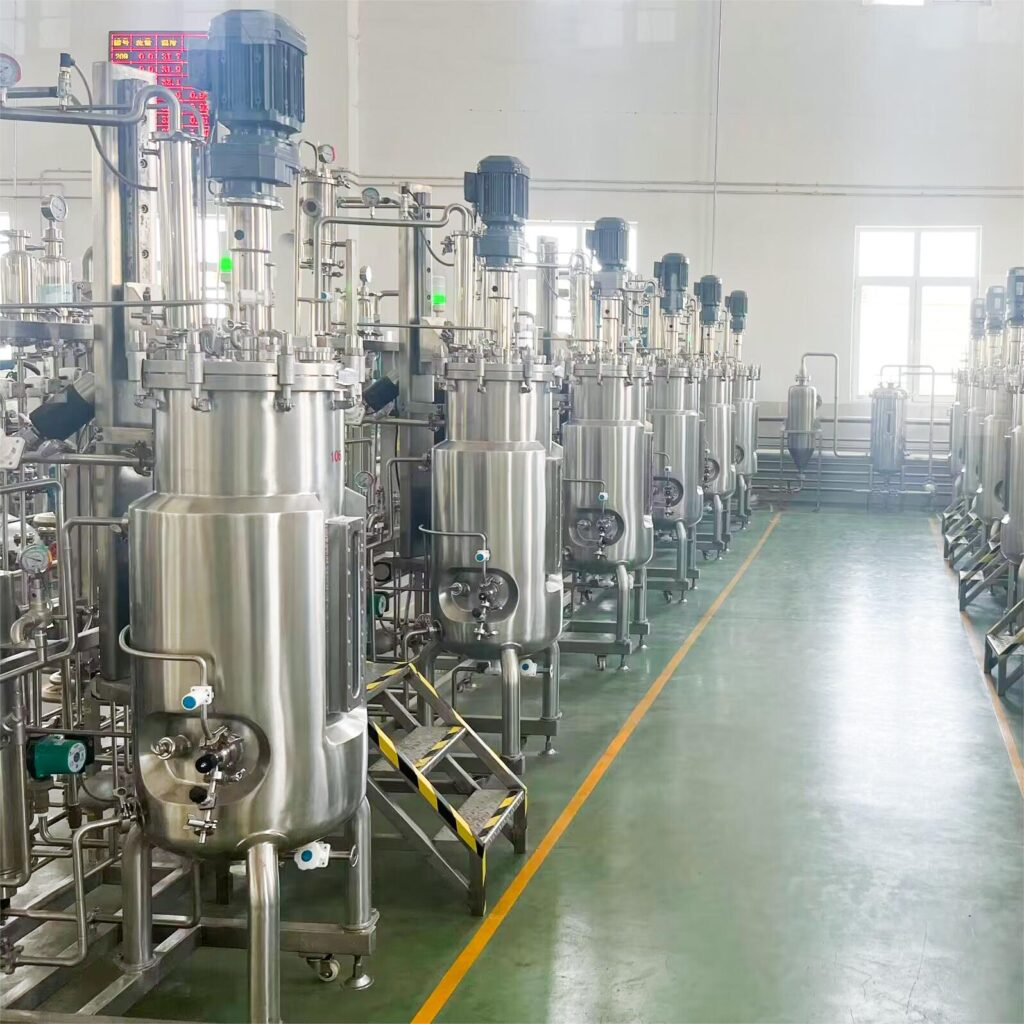
As dietary habits evolve and more people pay attention to their overall wellness, scientists are starting to discover links between gut health and fermented foods. This is because fermented foods provide the body with the necessary probiotics that help prevent health conditions such as obesity and gut inflammation.
This guide will provide you with a comprehensive analysis of everything you should know about food fermentation and the various health benefits of fermented foods to your gut’s health. Let’s dive in.
So, what exactly is fermentation?
Fermentation is the metabolic process upon which microorganisms such as fungi break down sugars into alcohol and gases. The process naturally increases the food’s shelf life while adding to its nutritional value.
Fermentation also adds beneficial compounds such as probiotics, prebiotics, and postbiotics. These biotics have now been coined as good bacteria, which can significantly boost your immunity and improve the digestive process.
The fermentation process creates optimal conditions for the good bacteria to survive, making fermented foods a good source of beneficial compounds.
The process occurs when food is preserved in the absence of oxygen through anaerobic respiration, however, in rare occasions, fermentation can also occur in the presence of oxygen. Microorganisms such as yeast and lactic acid microbes feed on the sugar in the food and release byproducts such as vinegar, alcohol, and lactic acid. These byproducts give the food its added nutritional content, flavor and health advantages.
The health benefits of food fermentation have been subject to scientific scrutiny for decades. Researchers have identified various ways to modify the fermentation process to ensure the food benefits human gut health.
Types of fermentation

There are different types of fermentation depending on the by-product of the chemical process. They include:
- Alcoholic fermentation – Whenever fermentation is mentioned, your first thought might be alcohol. This form of fermentation is common in producing alcoholic drinks such as beer and wine. Yeast facilitates this fermentation process and converts the complex sugar into alcohol and gas.
- Acetic Acid fermentation -This is where the bacteria convert alcohol into acetic acid. This form of fermentation is common in vinegar production.
- Lactic acid fermentation- The bacteria behind this form of fermentation is Lactobacillus which converts complex sugars to lactic acid.
The bacteria in the fermented food also break down complex nutrients, making them easier for the body to absorb once ingested.
Correlation between Gut Microbiome and Gut Health
As discussed earlier, fermented foods are a good source of prebiotics, probiotics, and postbiotics.
Probiotics are the live bacteria that survive on prebiotics, the actual fermented food. On the other hand, postbiotics are the compounds that boost your health. These compounds have been identified to have more health benefits than over-the-counter supplements. Doctors, therefore, recommend gradually incorporating fermented foods into your diet to achieve overall gut health.
Gut microbiome is a term that refers to the complex ecosystem of microorganisms that reside in your gut. The composition of your gut microbiome is largely influenced by your diet, which should include fermented foods. The gut is sometimes called the second brain due to its role in your overall health. It also harbors good bacteria that are crucial in maintaining your overall health.
You can ingest foods that contain good bacteria or prompt their production to increase your gut microbiome. A diet rich in fermented foods boosts the gut microbiomes and addresses concerns such as stomach lining inflammation.
Once this balance is altered, you are likely to suffer from various health concerns such as stress, poor digestion, obesity, inflamed bowels, and overall weaker immunity.
What can alter gut microbiome balance?
Various factors can disrupt the gut microbiome balance; these include:
- Poor diet – As discussed, the gut acquires most of its microbiomes from the diet. Therefore, taking a diet high in sugar and unhealthy fats, hinders the growth of microbiomes in the gut. This is because these foods promote the growth of harmful bacteria that can lead to lifestyle diseases such as obesity.
- Stress – Stress triggers the overproduction of digestive fluids altering the microbiome balance and can cause gut inflammation.
- Antibiotics – Antibiotics are often administered to treat conditions such as flu and other bacterial infections. They are intended to kill the harmful bacteria in the gut and help the body recover. However, antibiotics also kill all the good bacteria in the gut, altering the microbiome balance.
- Fiber deficiency – Fiber helps manage the good bacteria in the gut, therefore, low fiber can reduce microbiomes and promote harmful bacteria growth.
Health Benefits of Fermented Foods
As discussed, fermented foods have a wide range of health benefits. In fact, some dieticians believe that foods are more nutritious in their fermented form than in their regular form. That said, here is a breakdown of some notable health benefits associated with fermented foods.
1. Improved Digestion
Your dietitian might have mentioned that adding fermented foods to your diet can help improve your digestion. This is because fermented foods can help break down carbohydrates and complex sugars that may lead to bloating and constipation.
Fermented foods often contain Lactobacillus and Bifidobacterium, which are essential in breaking down complex sugars. Once the carbohydrates are broken down, the body has an easier time absorbing the nutrients.
This is especially beneficial to individuals who have a hard time digesting certain products. For instance, a lactose-intolerant individual might benefit from fermented foods. Lactose malabsorption means that you have insufficient microbes to break down the sugars once ingested.
Dairy products such as Kefir contain microbes that help catalyze the breakdown of the lactase. This reduces the stomach discomfort that lactose-intolerant individuals suffer from.
Fermented food can also improve digestion for individuals with coeliac disease. The probiotics help break down some of the gluten, reducing discomfort.
Fermented foods also help prevent a leaky gut that occurs when the intestinal barrier is unable to prevent toxins from entering the blood. A leaky gut may cause digestive issues due to the inflammation of the gut walls. Fermented foods strengthen the barrier, keeping all the toxins and undigested food in the colon before breakdown.
2. Balanced pH in the gut
One of the less popular benefits of fermented foods is balancing the body’s pH levels. The gut thrives in various states, depending on the organ. Some gut parts thrive in an alkaline state, while others thrive in an acidic state. Microbiomes ensure the body maintains the appropriate pH levels, preventing a wide range of issues, such as poor digestion and fatigue.
3. Boosts the immune system
As mentioned, fermented foods contain live bacteria that aid in improving the immune system. With the good bacteria in your gut, you are less susceptible to infections such as flu and yeast infections.
Fermented foods also add probiotics to your gut, helping you recover from bacterial infections much quicker. Additionally, these foods have high nutritive value with extra components such as zinc and vitamin C that aid in improving other bodily functions such as increased collagen production and bone strengthening.
Lastly, fermented foods reduce bacteria such as Clostridium difficile, which may cause diseases.
4. Improves food absorption
The bacteria in the fermented foods break down the complex sugars, making them more absorbable. As such, the body gains more value from the ingested foods. For instance, probiotics help break down antinutrients such as lectins.
The components found in antinutrients, often grains, prevent the absorption of essential nutrients. Ingesting fermented foods, such as fermented beans, increases food absorption when the bacteria breaks down the components.
5. Production of Short Chain Fatty Acids (SCFAs)
Short-chain fatty acids are produced by the good bacteria in your gut. They are essential in maintaining the colon’s health. These fatty acids ensure that nutrients are properly absorbed in the colon cells by reducing inflammation and strengthening intestinal barriers. This way, they prevent diseases such as obesity and inflammation that are caused by malabsorption of food nutrients as well as poor colon health.
The SCFAs are produced once the good bacteria ferment the fiber in the colon. They are also a source of energy for the colon lining cells, further improving digestive health by maintaining intestinal barriers.
6. Mental health benefits
Scientists have found a link between gut health and mental health. Fermented foods help improve your mood and reduce anxiety by increasing serotonin levels.
Scientists have also identified the gut-brain axis as the communication system between the brain and the gut. Fermented foods regulate the axis by maintaining the gut’s barrier integrity and influencing neuroendocrine regulation. Further research indicates more complex interactions between the brain and the gut, especially in influencing hormone production.
7. Weight Management
Fermented foods help manage body weight by boosting metabolism. People with proper gut balance have been found to have better food habits and, thus, healthier weight. As such, doctors recommend long-term consumption of fermented foods to maintain the gut microbiome. The probiotics, in turn, fight off disease-causing pathogens and help maintain healthy body weight.
Top fermented foods that improve gut health
1. Yogurt
Once milk is fermented using lactobacillus and Bifidobacterium, it thickens to form yogurt. The lactic acid produced after fermentation gives it its tangy and flavored taste. Once yogurt is ingested, it adds the microbiomes in the gut, which help improve digestion and boost the immune system.
2. Kimchi

This is a common delicacy in Korean culture that consists of fermented cabbage or radish. The meal is rich in good bacteria, such as lactobacillus, which helps reduce inflammation in the gut. Additionally, researchers have identified Kimchi as an immune system booster and helps balance cholesterol levels.
3. Kefir
Kefir is known for its rich microbiome content with over sixty strains of beneficial bacteria. It is a dairy product with a lesser consistency than yogurt. Scientists have found that Kefir enhances the body’s immune system and overall gut health. The product also helps those suffering from lactose intolerance to easily digest dairy.
4. Sauerkraut
This is also an Eastern European delicacy made of fermented cabbage. The meal has a high content of lactic acid bacteria, vitamins, and fiber. These bacteria help increase the microbiome diversity in the gut and reduce stomach discomfort through improved digestion.
5. Kombucha

Kombucha is a fermented beverage made from black or green tea with sugar. It contains a wide range of probiotics and antioxidants that are beneficial for the human gut. Scientists have found this drink helpful for individuals with digestive issues and suffering from inflammation.
6. Tempeh
This delicacy is made from fermented soybeans and is often served alongside Korean dishes. During fermentation, bacteria break down the soybean components, making them more absorbable when ingested. Tempeh has also been identified as a good source of protein and fiber, which contribute to a healthier gut.
Takeaway
In conclusion, the fermentation process is an old-age technique that is still relevant to date. Research indicates that fermented foods not only offer us additional nutrients but also a wide range of health benefits.
Fermented foods leverage the embedded probiotics to provide digestive and gut health benefits. Gradually adding fermented foods to your diet can help balance the gut microbiome, which helps maintain its integrity by reducing inflammation and improving nutrient absorption.
You can introduce fermented foods to your diet in small portions while experimenting with different flavors. This way, you can identify what you enjoy and what works well for your gut.
Choose Bailun Equipment in your fermentation process!
The fermentation process has existed since the beginning of time and has evolved over time to influence unprecedented sectors such as the energy and pharmaceutical industries.
Bailun technology has not been left behind in this evolution. The company provides the best equipment to ensure you acquire the best products in the market. Our industry fermenters are not only compliant with good manufacturing practices but also offer efficiency and dependability.
Bailun offers cutting-edge technology and expertise to ensure consistent and effective results as you aim to expand your fermentation process yield. For further inquiries, contact us today!

